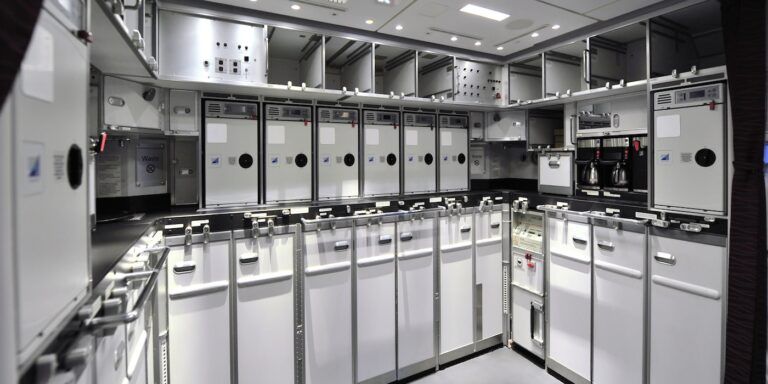Budget holders are often reluctant to fund beautiful carpets, illuminated monuments or improved catering. In this series of blogs I have written about how product developers can borrow insights used in pricing and revenue management (PRM) to convince budget holders that improving the customers’ experience will raise more in revenue than it costs to roll out.
Sometimes though, insights from PRM specialists can help developers find new ways to save money. Such savings found can help convince budget holders to reinvest in product development. The most important of these opportunities is in galley loading.
The challenge
Airlines never know which passengers are going to be hungry and which will have eaten before the flight. Trying to balance offering service to every passenger against preparing and cooking meals that will be thrown away is one of the most interesting challenges in airline catering.
In many cases the flights, routes and times where meals are most likely to go to waste can be found out through a combination of cabin crew comments, customer feedback and, if necessary, counting uneaten meals coming off the plane. But sometimes that is not enough, especially when external factors not watched every day by catering change. In many cases though these external factors are watched closely by PRM, and they can give you a heads up.
Forecasting and the galley loading process
Passengers book their tickets days, weeks or months ahead of travel. When changes occur a new schedule for example passenger profiles and demand for meals on particular flights can also change and this will be known to PRM. For example, if more passengers than before start connecting onwards to Japan and fewer to Australia then you should arrange for PRM to tell you this in advance. Then you can adjust your catering accordingly and cater more to Japanese tastes and less to Australian.
In this example the same number of meals may be served as before, but less food is still likely to be thrown away and passenger satisfaction will be improved.
In another example, PRM may notice that last minute no-shows change, either on every flight or at certain times. Knowing this you can safely reduce the number of meals and other catering items loaded at the last minute, saving money in meals and fuel.
In each of these cases and many more, PRM have the forecasts and pre- departure information you need. Reach out to them to make the most of it.
Applying trial-improvement methods to test ideas
Designing airline meals borrows elements from arts and sciences, but testing what works in practice must be based on experiment, learning through observation. Use information from PRM to help refine your galley-loading strategy, but trial new ideas on a selection of flights to make sure that what actually happens is close to what you expected before you change everything. Once again, PRM may be able to help because hypothesis-driven trial-improvement exercises with measurable and objective success criteria are some of their core activities.
Oliver Ranson is the founder of Ranson Pricing. Oliver was educated at LSE, where he took a First and then a Masters in economics. The rigorous microeconomics grounding that he received at LSE formed the basis of his passion for pricing.
After graduating Oliver joined leading consultancy Analysys, where he helped a mobile phone network operator justify their prices in front of their local regulator and conducted research for the European Commission.
He then moved to revenue management at Qatar Airways, creating from scratch the strategy framework and tools necessary for the airline to completely redefine their pricing. Before founding Ranson Pricing he was head of product research at Qatar Airways, where he applied his deep understanding of pricing concepts to investigate how product enhancements drive revenue.
Oliver believes that effective pricing based on both rigorous analysis and sound intuition is the key to long-term profitability.





